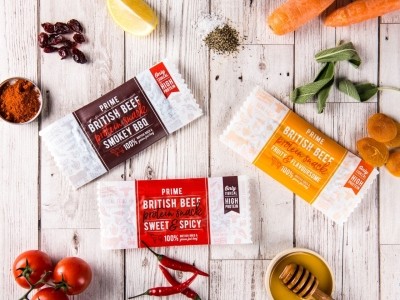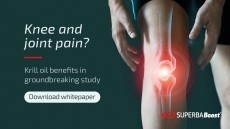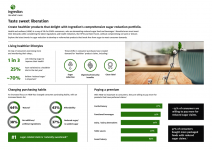‘We’re not all turning into vegans’: New Nutrition identifies meat as a growth opportunity
According to the company’s latest annual trend report, 10 Key Trends in Food, Nutrition and Health 2020, meat consumption is indeed in growth. For the first time, the report identifies meat, alongside plant-based, as an opportunity for food makers.
“Consumers’ perception of meat as a tasty and high-quality protein is driving the reinvention of meat and will secure its permanent place on the plate, and as a snack,” Julian Mellentin, a consultant to the food and beverage industry and author of the report, said.
“People want plants, but we’re not all turning into vegans. In a world where consumers hold fragmented beliefs, there’s room for both plants and meat.”
Innovation in meat
So what innovation and messaging is appealing to meat-eaters? New Nutrition said ‘creative meat producers’ are ‘taking steps to reinvent their category’.
In particular, sustainability, provenance and convenience were identified as key innovation drivers globally. In the US, for example, IRI data revealed that meat snack sales increased 6.7% in 2019.
Meanwhile, Nielsen data suggests that meat brands with clear communication on sustainability, provenance and animal welfare are resonating – and attracting price premiums. For example, US sales of meat with health or environmental claims are ‘growing rapidly’, led by organic and grass-fed claims, up by 13.1% and 12.2% respectively.
Opportunity supported by key trends
Mellentin said that consumers are particularly receptive to positive messages about meat right now because it feeds into other key consumer trends identified in the report. These include growing demand for protein, lower-carb diets and the ‘rebirth of fat’.
Consuming fewer carbs – which often means eating more fat and/or protein – is growing in popularity, fueled by diets like keto.
This is partially being fueled by concern over the “ultimate bad carb” – sugar. New Nutrition noted 80% of US consumers say they are limiting or avoiding sugar in their diets, and there are similar levels of concern in Europe and South America.
Looking at sugar reduction, New Nutrition claimed manufacturers would benefit from leveraging sugar replacement ingredients such as inulin fibre. Not only does this meet demand for low sugar products, it also has benefits for digestive health. The Troo Granola brand in the UK, for example, uses inulin syrup in its products because it serves both as a prebiotic and a sweetener.
These twin benefits have caused demand for inulin to surge – the number of products launched that feature inulin doubled between 2012 and 2019.
The report also flagged fragmenting consumer beliefs because, alongside a growing demand for low-carb or low-sugar products, indulgence is also a big growth driver. “In the midst of the focus on health and nutrition, let's not forget that most people buy bakery products for pure pleasure,” stressed Mellentin. “Natural ingredients, provenance and great taste all matter more than nutrition.”
The 10 key trends identified in the report are:
- Digestive Wellness
- Good Carbs, Bad Carbs
- Plant-based
- Protein
- Sugar - Reinventing Sweetness
- Rebirth of Fat
- Meat Reimagined
- Provenance and Authenticity
- Energy 2.0
- Mood
And there are four “mega trends” that New Nutrition says span all categories:
- Naturally Functional
- Fragmentation
- Snackification
- Sustainability















